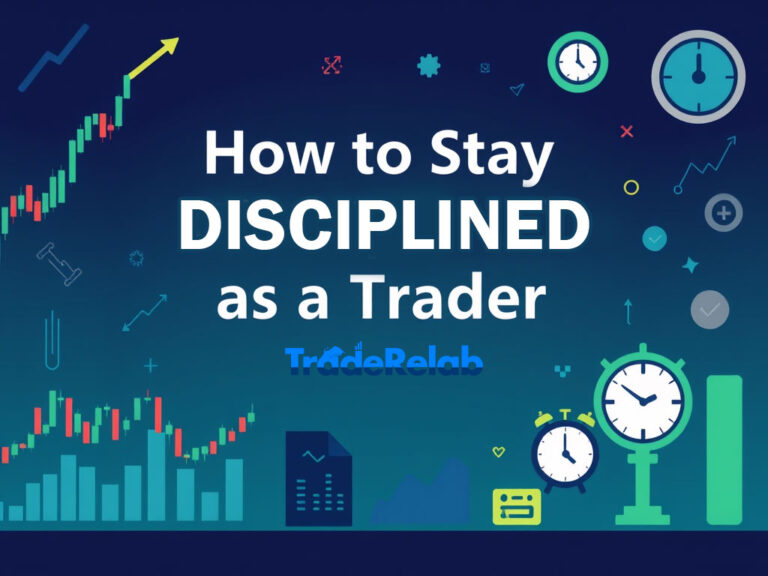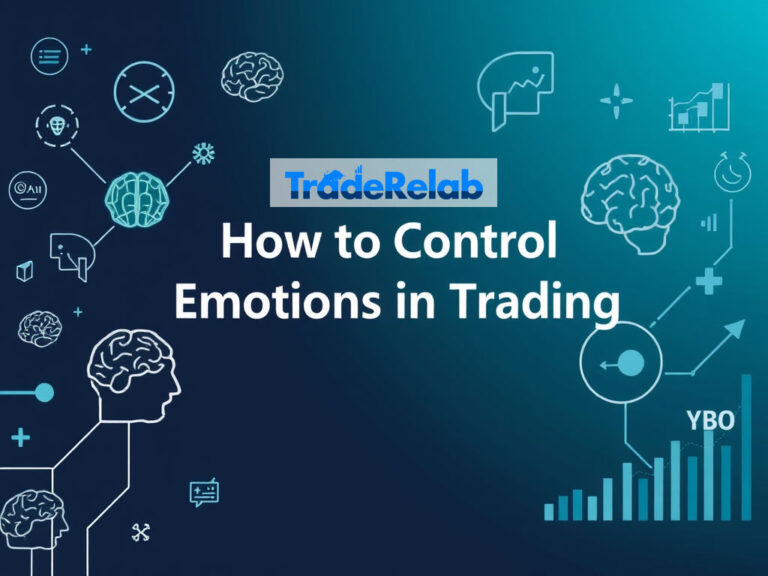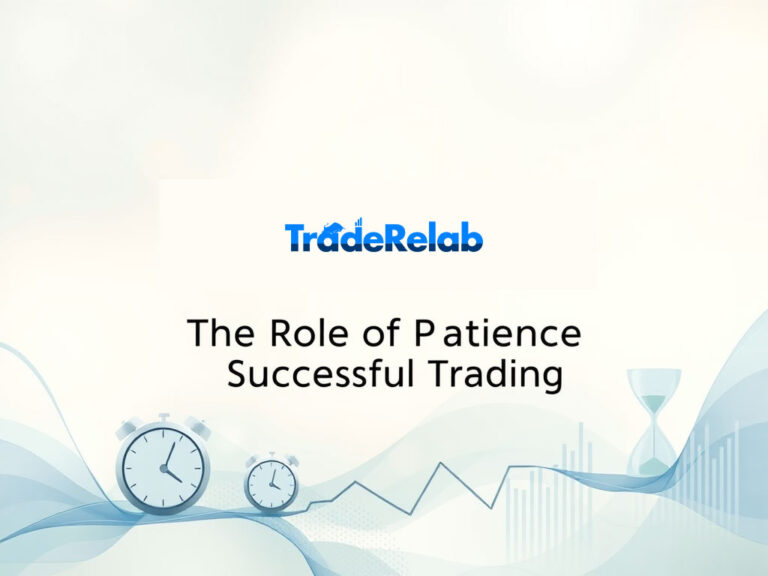Why Do Traders Lose Money? The Psychology Behind It

Trading in the financial markets is a challenging endeavor, and while some traders succeed, many fail to make consistent profits. A significant part of why traders lose money is rooted in psychology. The markets are not only influenced by economic data and news but also by human emotions, decision-making processes, and cognitive biases. Understanding the psychological factors behind trading losses can help traders develop better strategies and more disciplined mindsets, ultimately improving their chances of success.
In this article, we will explore the key psychological reasons why traders lose money and how to overcome them.

The Role of Psychology in Trading
Trading is often viewed as a numbers game, a skill that relies on analyzing charts, economic reports, and price trends. While these elements are important, they are only part of the picture. The true battleground for traders is their own mind. Emotions such as fear, greed, overconfidence, and impatience can all drive traders to make decisions that are far from rational, ultimately leading to losses.
The psychology behind trading involves understanding how emotions and cognitive biases influence a trader’s behavior. Being aware of these psychological pitfalls can help traders avoid making costly mistakes and stay focused on their long-term goals.
Common Psychological Pitfalls that Lead to Losses
1. Fear of Losing (Loss Aversion)
One of the most significant psychological barriers that traders face is the fear of losing money. This fear, often referred to as loss aversion, causes traders to react irrationally when their trades move against them. It is a well-documented psychological phenomenon where the pain of losing money is felt more intensely than the pleasure of gaining money.
Traders suffering from loss aversion might prematurely exit a trade to avoid further losses, even if it’s against their original plan. Alternatively, they may hold on to losing positions in the hope that the market will turn in their favor, resulting in even bigger losses.
How to Overcome Loss Aversion:
- Use Stop-Loss Orders: This helps limit the emotional pain of losses by automating the exit strategy.
- Accept Losses as Part of the Game: Accepting that losses are inevitable in trading can help you remain calm and avoid emotional decision-making.
- Focus on Risk Management: Rather than fixating on individual losses, concentrate on managing risk across all trades.

2. Greed
Greed is another powerful emotion that can cause traders to lose money. The desire for larger profits often leads traders to take on excessive risk, overleveraging, or ignoring their own trading rules. Greedy traders may hold onto positions for too long, expecting the market to keep moving in their favor, or they may increase their trade size in an attempt to recover from a loss quickly.
Greed often results in a lack of discipline and poor decision-making. When traders chase after large gains, they typically ignore their risk management rules and expose themselves to greater risks than they can afford.
How to Overcome Greed:
- Set Realistic Profit Targets: Having clear profit targets can help you lock in gains and avoid getting carried away by greed.
- Stick to Your Plan: Follow your trading plan consistently, without being swayed by the temptation to chase bigger profits.
- Take Regular Breaks: Step away from the market after a winning streak to avoid overtrading due to greed.
3. Overconfidence
Overconfidence is another psychological pitfall that many traders fall victim to, especially after a few successful trades. Overconfident traders believe they have mastered the markets, leading them to take unnecessary risks. This overconfidence can result in poor decision-making, as traders ignore or downplay the risks involved in their trades.
Overconfidence can also manifest as a trader’s belief that they can predict market movements with certainty, leading to impulsive trading based on gut feelings rather than analysis.
How to Overcome Overconfidence:
- Evaluate Every Trade Objectively: Review each trade critically, regardless of whether it was a success or failure. This helps you stay grounded and aware of your own biases.
- Stick to a Structured Plan: A solid trading plan helps mitigate impulsive decisions driven by overconfidence.
- Use Position Sizing: Proper position sizing helps you manage risk, even if you’re feeling confident about a trade.
4. Impatience
Impatience can cause traders to enter and exit trades prematurely or to overtrade in an attempt to force profits. Trading requires patience—waiting for the right opportunities and allowing trades to unfold according to plan. However, impatient traders often make decisions based on short-term price movements, missing out on more significant, long-term opportunities.
Impatience can lead traders to trade too frequently, chasing small profits, or to react impulsively to market fluctuations. This can result in unnecessary losses and commissions.
How to Overcome Impatience:
- Wait for High-Probability Setups: Don’t rush into trades. Wait for conditions that meet your trading criteria.
- Practice Patience: Allow trades to play out according to your plan, and avoid the temptation to take profits or cut losses too quickly.
- Use Alerts and Notifications: Set price alerts so you can wait for the market to meet your predefined criteria, reducing the need to monitor the charts constantly.
5. Recency Bias
Recency bias is the tendency for traders to place too much emphasis on recent events or outcomes, such as the most recent trades or market trends, and make decisions based on this information. If a trader has experienced a few winning trades, they may believe they are on a streak, which can lead to overconfidence and impulsive decisions.
Alternatively, after a losing streak, a trader might assume that the market is against them, leading to a lack of conviction in future trades or a reluctance to take on new opportunities.
How to Overcome Recency Bias:
- Stick to Your Plan: Don’t let recent outcomes influence your decision-making. Consistently follow your trading plan.
- Take a Step Back: After a win or a loss, take a break to assess the situation rationally, without being influenced by recent events.
6. Anchoring
Anchoring is the cognitive bias that occurs when traders fixate on a particular piece of information, such as the price at which they entered a trade, and allow it to influence their decision-making. For example, a trader might hold onto a losing position because they anchor to their original entry price, hoping it will return to that level.
This bias can prevent traders from cutting losses or locking in profits at more favorable levels.
How to Overcome Anchoring:
- Reassess Your Trades Objectively: Continuously evaluate whether the market conditions still align with your original trade plan, instead of sticking to your initial entry point.
- Use Technical Analysis: Focus on technical signals rather than emotional attachments to specific prices or levels.
How to Manage Psychological Challenges in Trading
While psychology plays a major role in trading losses, it can also be managed effectively with the right mindset and tools. Here are some strategies to help you manage your emotions and mental state while trading:
1. Keep a Trading Journal
Documenting your trades, thoughts, and emotions can provide invaluable insight into your psychological patterns. By tracking your wins and losses, you can identify when emotions like fear or greed influence your decision-making and take corrective action.
2. Practice Mindfulness and Stress Management
Techniques such as mindfulness meditation, deep breathing exercises, and physical exercise can help reduce stress and increase emotional resilience. These practices allow you to maintain a calm and focused mindset, even during periods of market volatility.
3. Use Automated Trading Systems
If you struggle with emotions affecting your trades, consider using automated trading systems or algorithms. These tools can execute trades based on predefined criteria, removing the emotional element from decision-making.
4. Focus on Long-Term Goals
Rather than fixating on individual trades, focus on your long-term trading goals. Accept that losses are part of the process, and don’t let them undermine your confidence. Maintaining a long-term perspective helps prevent emotional reactions to short-term market fluctuations.
Conclusion
The psychology behind trading losses is complex, but by understanding the emotional and cognitive biases that influence your decisions, you can take proactive steps to manage them. Fear, greed, overconfidence, impatience, and biases like recency and anchoring can all lead to costly mistakes, but with self-awareness, discipline, and effective risk management, traders can avoid these pitfalls. By adopting a more rational, objective mindset and focusing on consistent, long-term success, traders can reduce the impact of psychology on their trading results and become more profitable over time.
FAQ:
1. How does fear influence trading decisions?
Fear often causes traders to close trades too early or avoid taking risks, fearing losses. It leads to hasty decisions rather than sticking to a solid strategy.
2. What is loss aversion in trading?
Loss aversion refers to the psychological tendency to feel the pain of losses more intensely than the pleasure of gains, often leading traders to make irrational decisions.
3. How can I avoid greed in trading?
By setting realistic profit targets, sticking to your trading plan, and avoiding the temptation to overtrade, you can keep greed in check.
4. How can I overcome impatience in trading?
Patience can be improved by waiting for high-probability setups, sticking to your trading plan, and using alerts to avoid reacting impulsively to market changes.
5. Why do traders experience overconfidence?
Overconfidence arises after a series of successful trades, leading traders to take excessive risks or ignore their strategies. To avoid it, always evaluate trades objectively and stick to your plan.






